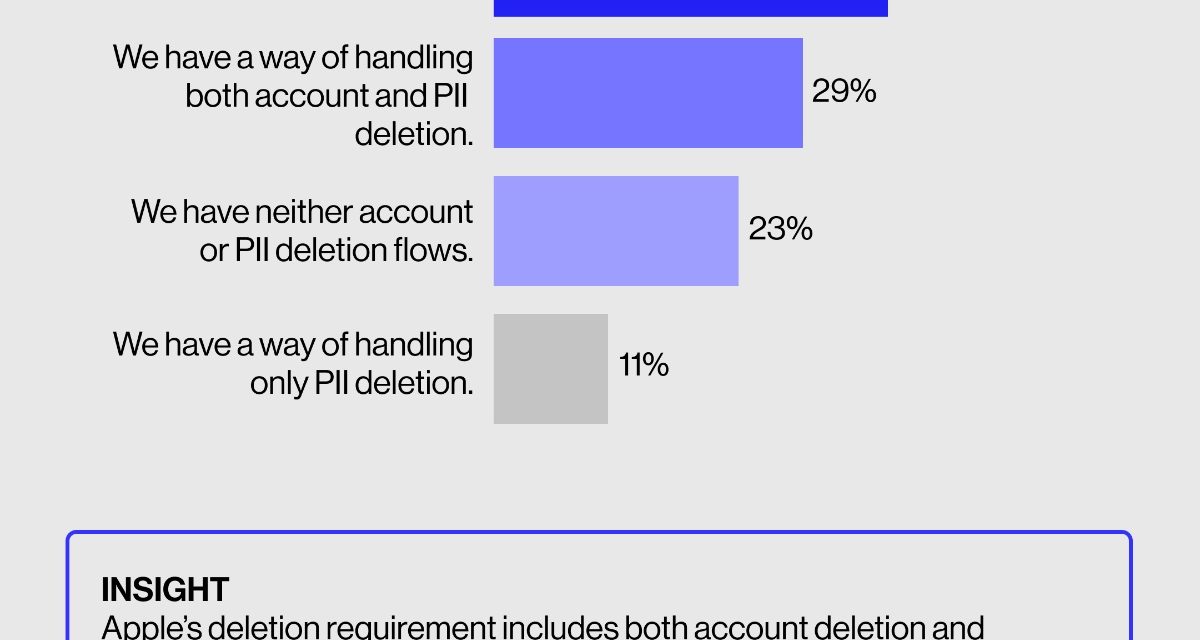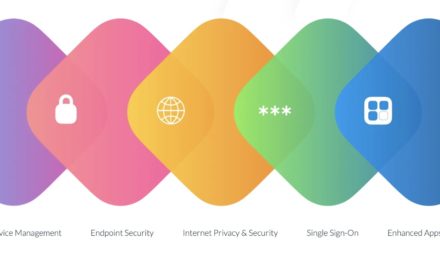Transcend, a “one-stop platform that makes it easy to encode privacy across a company’s tech stack,” released the results of its latest survey of technology decision makers, which assessed their readiness for Apple’s in-app deletion requirements for iOS apps that offer account creation.
The findings show that 71% of companies surveyed aren’t fully prepared to meet Apple’s June 30, 2022 compliance date. The tech giant’s guidance requires iOS applications that allow account creation to allow for in-app deletion of not just a consumer’s account but deletion of their entire personal data footprint.
In addition, Transcend’s research found that:
- In order to comply, over two-thirds of companies plan to invest significant engineering time to address Apple’s mandate.
- Less than a quarter of respondents understand the full scope of Apple’s in-app deletion requirements, despite clarifications from Apple.
Transcend CEO Ben Brook says in a press release that the company is rolling out a new product as part of their privacy platform that specifically equips companies with the ability to programmatically delete user accounts and erase personal data through their in-app interface—without the “engineering lift.”
With Transcend’s offering, companies can purportedly fulfill account and data deletion requests across their entire data footprint with pre-built workflows and include checks or holds as required. Brook says that, with Transcend’s dedicated onboarding and technical support, companies can offer fully compliant solutions for Apple’s requirement “in less than a week.” For more on Transcend’s In-App Data Deletion product, visit https://transcend.io/solution/apple-deletion-privacy/.
Apple’s Directive
In October 2021, Apple updated their App Store Guidelines to require that “all apps that allow for account creation must also allow users to initiate deletion of their account from within the app.”
The company went on to clarify that app providers should “review any laws that may require you to maintain certain types of data, and to make sure your app clearly explains what data your app collects, how it collects that data, all uses of that data, your data retention/deletion policies, and more as described in the guideline. Examples of this type of data include electronic health records, and sales and warranty records. Please also confirm that the app privacy information on your product page is accurate.”
What This Means for App Developers
Apple has shown increasing scrutiny over app updates and signaled it is not afraid to reject or remove apps from the store when they don’t meet guidelines. Moreover, with consumer privacy initiatives at an all-time high for Apple, developers should have every reason to believe Apple will take non-compliance seriously, according to Brook.
Article provided with permission from AppleWorld.Today





